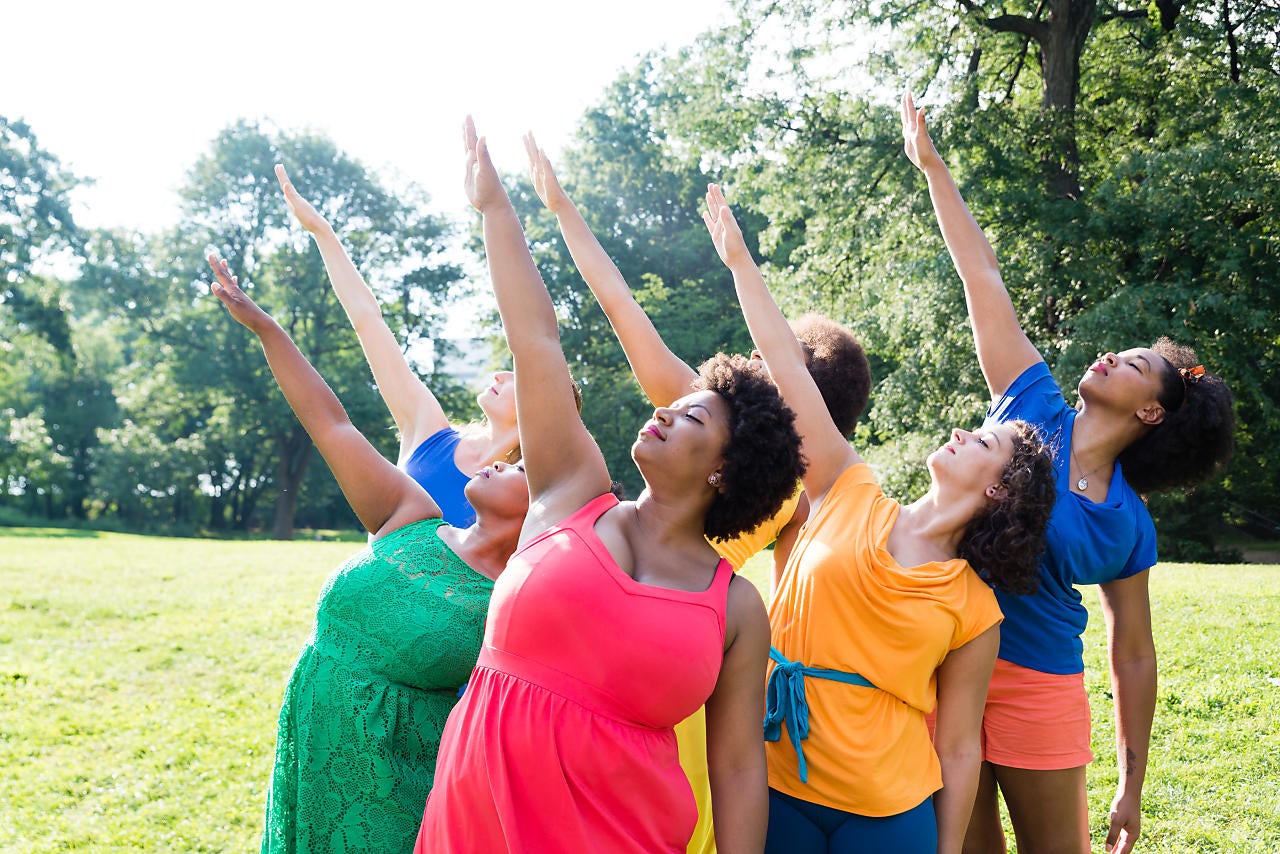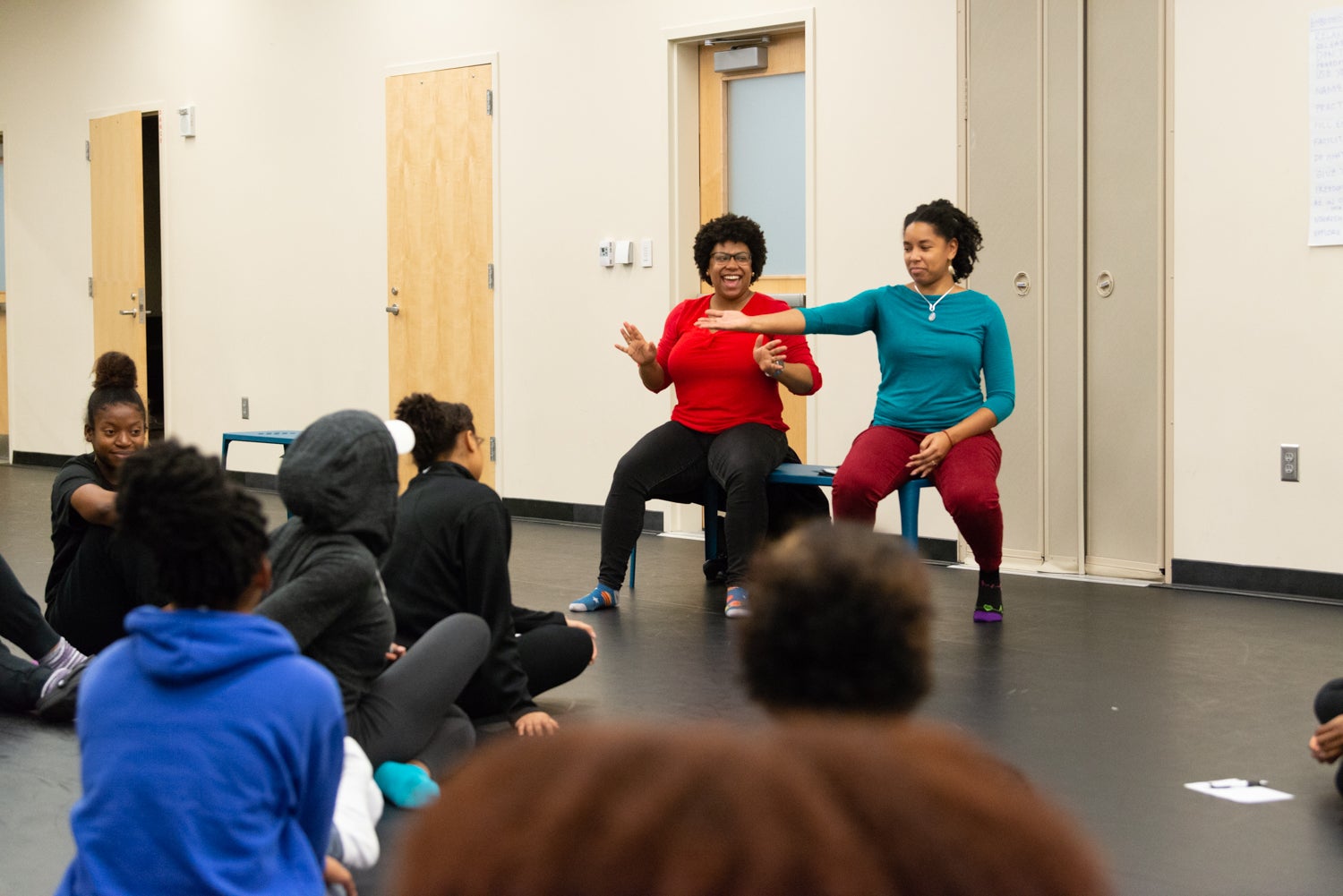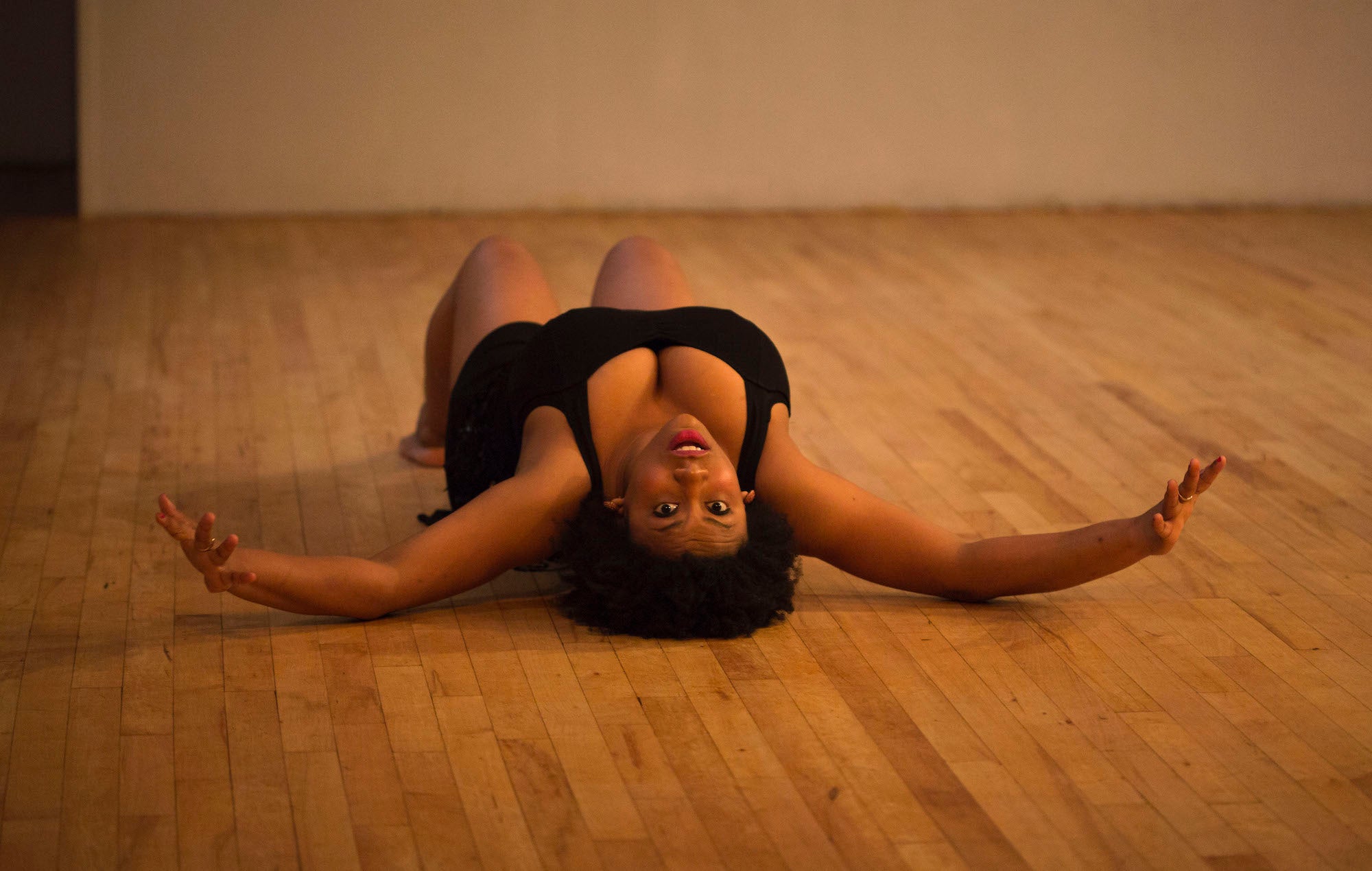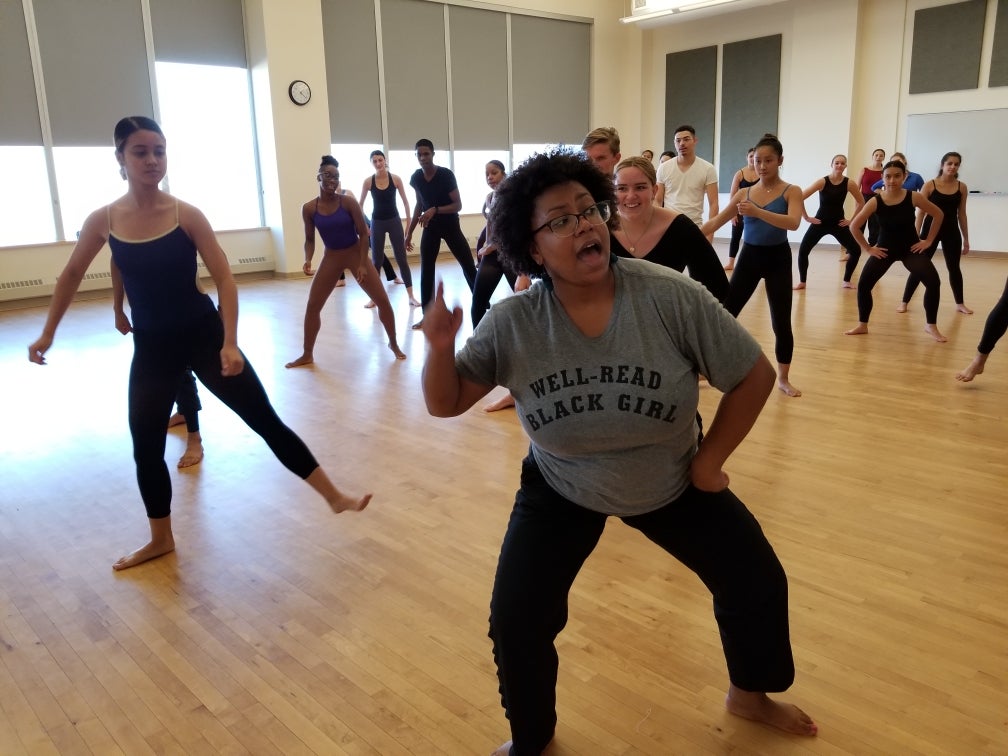
Do you know when you are unwell? Not unwell like a cold, but unwell, like not well. Can’t think straight or maybe thinking too straight. Brushing your teeth is pushing a boulder uphill. There is a dull yellow dustiness hanging about you. In your feelings. Lachrymose. Out of body. Missing sense of self. Not sure and not used to not being sure. If there is a you that you know, that you are intimately acquainted with, not-well-you is a pale or blurry or refracted reflection.
On December 3, 2019, SLMDances, the dance-theater collective I founded and currently direct, presented a work-in-progress showing at Lincoln Center Education in New York City where we are Community Artists in Residence. On December 4, my body promptly gave out. It was like she had held on until the last event of the year and as soon as it was completed, exhaustion, coughing and congestion set in.
I was laid out — too sick to complete necessary SLMDances administrative work or attend my dress rehearsal for The Brooklyn Nutcracker. This time, it was a stomach bug of some kind. I couldn’t keep anything in or down. I just made it through our weekend matinee performances before registering that 15 minutes prior to Saturday night’s curtain, I had a fever. I took some meds and prayed it would break before Act II. It did. I performed our three minute high-intensity Marzipan divertissement at medium intensity (which felt like I was going to die) and when it was all over went straight home and got in the bed. I was down for the count. That week, I had every intention of wrapping up my work for the year, but every time I sat down at the computer to attempt a task, I would burst into tears, cuss or scream.
It hit me: I was burnt out.

I called for backup. SLMDances Creative Partner Jessica Lee came to my house and spent 24 hours with me, serving as both accountability partner to get most essential tasks done (getting dancers the last paycheck of the year) and helpmate in splitting some of the work. But not before I cried snottily on her shoulder, only able to articulate three words: I’m not well. Not just because of coughing and congestion and sore throat, but because psychically I had lost my wherewithal.
Do you want to be well? Toni Cade Bambara famously asked this question in her 1980 novel The Salt Eaters. “Are you sure, sweetheart, that you want to be well?… Just so’s you’re sure, sweetheart, and ready to be healed, ‘cause wholeness is no trifling matter. A lot of weight when you’re well.”
For nearly six months now, I have been contemplating deeply what my true wellness feels like. I have uncovered that my cycles of wellness are inextricably tied to my cycles of art making and the oppressive systems that I consistently rub against while making that art. This is the third time in the past 10 years of dance making in New York City that I’ve found my body raising a yellow flag; every two-and-a-half to three years as soon as I complete a body of work. I ask myself: Is this just a part of the process that I should make peace with?
I want to be well. The pursuit of making art by, for and with the folks who I care the most about should not result in an endless cycle of break down. I want to be well. I have no intention of dying before my time and being a martyr to the work that I am called to do. I also have no intention of operating by the capitalist status quo ideas of labor and productivity on this land that has come to be called the United States. It is this tension that I am faithfully ideating, iterating and choreographing my life around.

Making work in this body means that I can not just “make art,” despite what my composition teachers imparted. Growing up, this body, thick with large breasts, danced primarily at my neighborhood recreation center in a liturgical dance troupe led by Ava Fields that gigged around Baltimore City. These breasts were not welcome at Baltimore School for the Arts where my friends were being trained to eventually dance in companies like New York City Ballet, Ballet British Columbia, Dallas Black Dance Theater, Cirque du Soleil and on Broadway. So while I participated in studio dance technique classes at school and summer dance festivals, remaining more embedded in community-based programs taught me that dance was useful — to praise God, to celebrate, to mourn, to inspire joy, to minister and that every body could dance.
I have been affirmed my entire life that I can do anything I want to do and be anything that I want to be. First from my family and community, and then the double-down from the elite white institutions that educated me. And why would I think I couldn’t, if I found success in their spaces? If the adversity that I encountered was beaten handily with excellent grades, being “articulate” and being able to call my daddy in for back up. My privileges – my education and ability to code-switch, my non-disabled and cis-gendered body, and heterosexuality – allowed me to believe the American bootstraps-hype. And so off into the world I went, delusional that I might be able to create something that wouldn’t kill me in the process. Experiencing success is not actually the same as being well, though our culture often uses that language interchangeably. And overidentifying with my work is still a symptom of capitalism, no matter how righteous the motivation. If you are socialized to succeed within a disease-ridden system and have experienced some success, how do you come to know that you have the sickness too?
I have come to understand burnout as a portal. With each cycle that my body shuts down, I re-emerge, devising new tools and new vision for the next phase. This usually manifests in the form of a dance and a further developing of the container to make that dance, SLMDances.
I burned out self-producing The Window Sex Project: my first evening length, community accountable dance-theater work that instigated dialogue and action about gender-based sexual violence in my neighborhood, changing hearts and minds with each performance and post-show conversation. But one morning I woke up and I couldn’t move. I hollered for my roommate who ran from her bedroom and only with her assistance could I get out of the bed. My back had literally frozen. It was the first time I made the connection that my body was manifesting the immense stress I had been carrying. I thought: this can’t happen every time I make a dance.
From that experience I learned what needed to be shed: the idea that I could DIY every show I produced and that working project-to-project didn’t allow space for me to create new works.
This cycle of burnout to lesson and revisioning happened again when SLMDances produced BodyBusiness and received our first major grant award. For each, we worked with institutional partners that seemed aligned on the surface, but in practice turned out to be a shit show as they did not know how to collaborate for a more equitable field with marginalized artists and arts administrators.
I am living a life that my ancestors perhaps hadn’t dreamed was possible.
It was then that I started seeing a therapist who told me something I’ll never forget: Sydnie, you can’t live your life in a state of emergency. In the spring semester of 2016, I called out of teaching almost once a week — on any given day I would wake up with back pain, neck pain, or shoulder pain. When I didn’t call out, I was almost always late and the idea of docked pay didn’t matter to me.
The cycle continued when I was rebuilding SLMDances into a collective and experienced hurt when Black women were repeatedly the first artists to resign because I was unable to offer them what they needed to sustain our collaboration. Still, I continue to optimize the SLMDances process for recruitment and nurturing artist relationships, especially for Black women and femmes. I’m dedicated to the development of creative work grounded in wellness practices for self and individuals in SLMDances. My trust in the collective to cultivate this carries me forward.
For more than a year now, I’ve been intensely contemplating the precarity of the life I’ve chosen. Although “chosen” doesn’t feel like the right word — I’m clear that I am a vessel for things greater than myself. And “more than a year” isn’t quite right either — I’ve always been in this eyes wide open, examining how to make it work. But these are the things that keep you up at night in more intense tears and bewilderment and anger as an artist in my 30s, who has yet to receive the big grants, the big jobs, the big press, the big bucks, the big anything that might make your life more sustainable in our society. I have the sickness.

I mean, this is the moment of: “F-ck it. I quit.” I have witnessed this moment in other artists with my own two eyes. I have heard stories of when a choreographer-artistic director literally just can’t do it anymore. Their resources and their gumption have run dry. They have children or spouses or other folks in their lives they need to support. They commit to finding a J-O-B and hope that they can still make art in the in-between hours. Or just give it up altogether. They had a good run. Time for something else. Some not even taking a moment to grieve. And those who keep going without their needs fully met?
Why won’t I quit? Why can’t I quit? I have to laugh at myself here. First of all, because quitting isn’t in this Taurus baby’s nature. Second, I have worked too damn hard and sacrificed so much. Often, I have cited that I am living a life that my ancestors perhaps hadn’t dreamed was possible. That I am exercising great privilege in having the audacity to be who I am and live life as an artist. But to whom much is given, much is expected and I have always carried with me the responsibility to do work that leads us all closer to just and liberated lives.
SLMDances is the first child I have brought into the world. I won’t give up on her. As Loretta J. Ross teaches in her preface to Revolutionary Mothering, “Mothering, radically defined, is the gladgifting of one’s talents, ideas, intellect, and creativity to the universe without recompense.” When I see what SLMDances has become — a collective rooted in mutual care and Black joy — I understand my mothering as valuable, essential and a radical way forward.
This essay is dedicated to Marcus White, a thirty-something Black dance artist and educator who passed on May 14, 2020: “Some of us continue, wounded and fatigued, but die before our time.” May your soul be at peace.